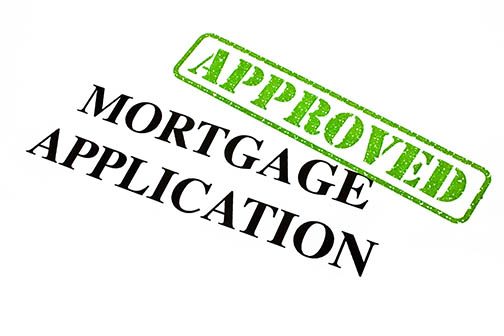What’s Ahead For Mortgage Rates This Week – January 30, 2017
 Last week’s economic news included readings on new and existing home sales and mortgage rates. Also released were reports on new jobless claims and consumer sentiment.
Last week’s economic news included readings on new and existing home sales and mortgage rates. Also released were reports on new jobless claims and consumer sentiment.
New and Existing Home Sales Lower in December
According to the U.S. Commerce Department, sales of new homes fell to 536,000 sales on a seasonally-adjusted annual basis. This reading was markedly lower than the expected rate of 595,000 sales and November’s reading of 598,000 sales. Analysts said that the drop in new home sales indicated that the housing sector is still experiencing a rocky recovery. December’s reading for new home sales was 10.4 percent lower than December’s adjusted reading of 598,000 sales. December’s reading was 0.40 percent lower year-over-year.
The median sale price of new homes was $322,500 in December, which was 4.30 percent higher than in November and 7.90 percent higher than in December 2015. The dip in sales has increased inventory of available homes to a reading of 5.80 months needed to sell all new homes presently available. Real estate pros typically consider a six-month supply of homes for sale a normal inventory.
In related news, sales of pre-owned homes were also lower in December. The National Association of Realtors® reported December sales at 5.49 million on a seasonally-adjusted annual basis; this reading was lower than expectations of 5.51 million sales and November’s reading of 5.65 million sales. The slower rate of sales may signal that home prices have topped out; there is also a very low inventory of available pre-owned homes for sale as compared to demand. Sales of pre-owned homes were 2.80 percent lower than November’s reading, which was the highest rate of existing home sales since 2007. Sales of pre-owned homes were 0.70 percent higher year-over-year.
Winter weather and holidays may have contributed to lower home sales in December, but higher prices, tough mortgage requirements and a low supply of available pre-owned homes were seen as obstacles to completed home sales for December.
Mortgage Rates Mixed, New Jobless Claims Rise
Freddie Mac reported higher fixed rates for mortgages last week. The average rate for a 30-year fixed rate mortgage rose 10 basis points to 4.19 percent; the average rate for a 15-year fixed rate mortgage rose six basis points to 3.40 percent. The average rate for 5/1 adjustable rate mortgage fell by one basis point to 3.20 percent. Discount points for fixed rate and 5/1 mortgages averaged 0.40 percent.
New jobless claims exceeded expectations of 250,000 new claims with a reading of 259,000 new claims and the prior week’s reading of 237,000 new claims. Analysts said that volatility is common with new jobless claims in January. There were few layoffs reported and good news that the new jobless claims rate remained below the benchmark reading of 300,000 new claims for the 99th consecutive week. This milestone was last seen in 1970.
The four-week rolling average of new jobless claims fell by 2000 to an average of 245,900 new claims filed; this was the lowest reading since 1973.
Consumer sentiment rose to 98.5 which surpassed the expected reading of 98.2 percent and December’s reading of 98.1 percent.
What‘s Ahead
Multiple readings on housing and labor related data will be released this week. Scheduled releases include pending home sales, Case-Shiller Housing Market Indices and construction spending. Reports on inflation and core inflation are due along with readings on non-farm payrolls, ADP payrolls and the national unemployment rate.
 Whether they’re found online or heard from family and friends, there are so many mortgage tips out there that it can be hard to know exactly how to proceed. But, if you’re new to the market, there are a few surefire things you can do to get a mortgage rate you’ll feel good about. For some of the best tips on getting a great loan, look no further than the following.
Whether they’re found online or heard from family and friends, there are so many mortgage tips out there that it can be hard to know exactly how to proceed. But, if you’re new to the market, there are a few surefire things you can do to get a mortgage rate you’ll feel good about. For some of the best tips on getting a great loan, look no further than the following. When you’re just moving into a neighborhood, it can be hard to know exactly what you’re getting into. Certainly, you can see the sights for yourself and read about your new community online, but there are still things that may not be readily available. If you’re looking for the cold, hard facts on the safety of your neighborhood, look no further than the following websites for the things you’ll want to know.
When you’re just moving into a neighborhood, it can be hard to know exactly what you’re getting into. Certainly, you can see the sights for yourself and read about your new community online, but there are still things that may not be readily available. If you’re looking for the cold, hard facts on the safety of your neighborhood, look no further than the following websites for the things you’ll want to know.